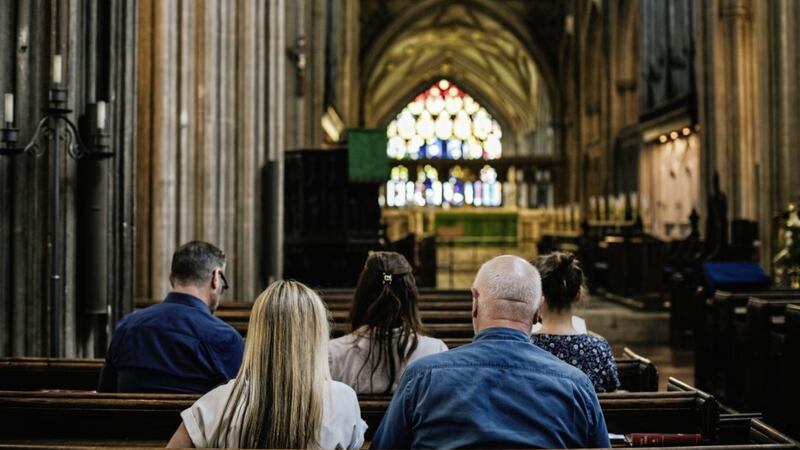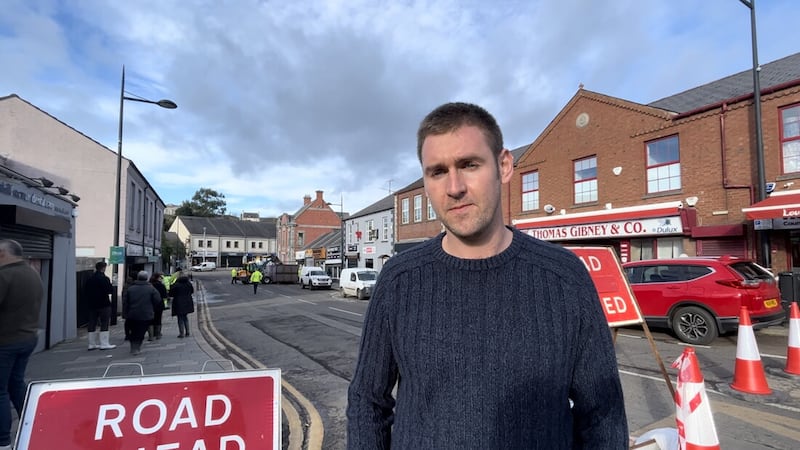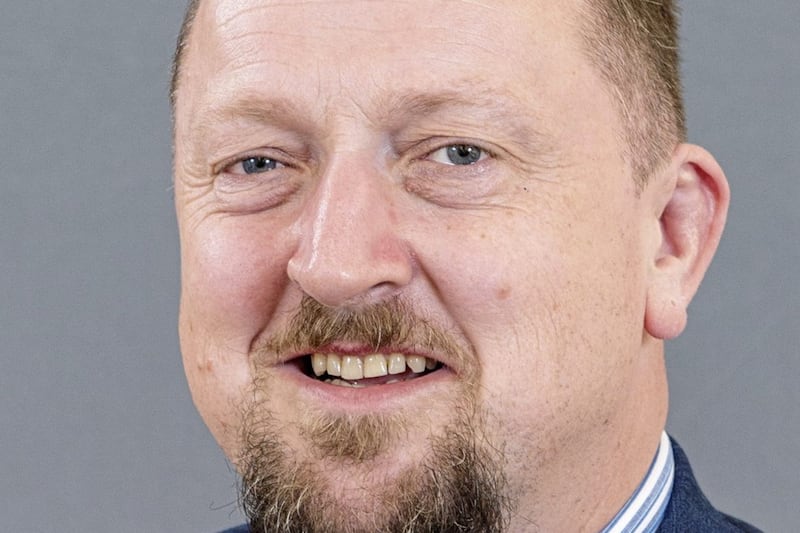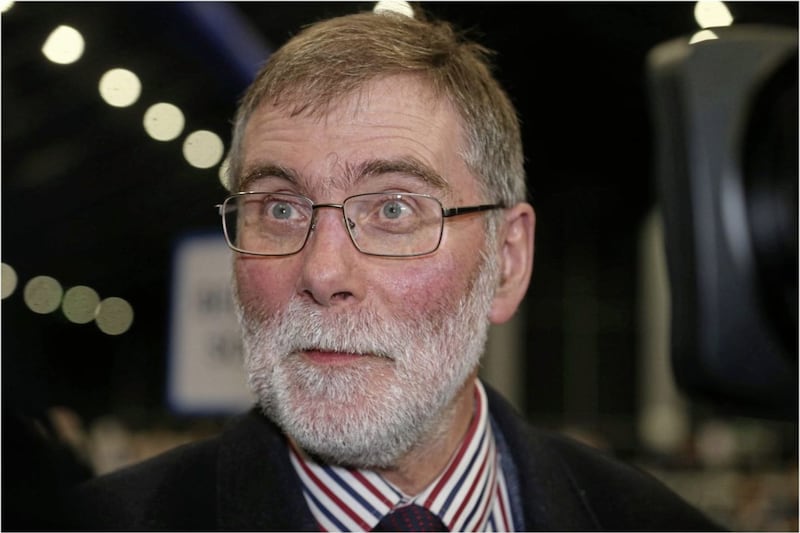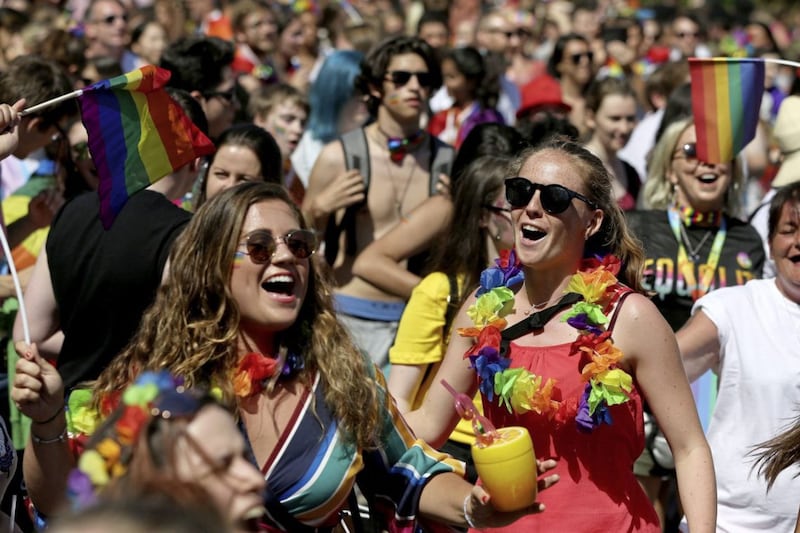LAWS against gay conversion therapy could stop people from seeking pastoral care about their sexuality, some of the main Christian churches have warned.
The Department for Communities is drafting legislation against the practice after MLAs voted in the assembly last month to pass an Ulster Unionist motion calling on Communities Minister Deirdre Hargey to introduce a ban before the end of the assembly mandate.
The DUP voted against the motion after its amendment, which supported a ban on conversion therapy but sought to include protections for "legitimate religious activities such as preaching, prayer and pastoral support", was defeated.
Party leader Arlene Foster and four other DUP MLAs abstained.
Some churches have raised concerns about a lack of clear definition on what constitutes conversion therapy.
A spokesman for the Methodist Church in Ireland said while it is opposed to coercive practices, conversion therapy is a broad term.
"While the Methodist Church in Ireland has not made an official statement on the matter, it does not endorse Conversion Therapy," he said.
"The Methodist Church in Ireland clearly states that everyone is unconditionally loved by God and that homosexual orientation itself is not a sin.
"As a church we are concerned for all and would not want anyone to be subject to harmful or unethical practices, including infliction of shame, pain or emotional trauma.
"On the other hand, we are also aware that the term ‘conversion therapy’ has been used to undermine some legitimate pastoral care and caution against inaccurate, blanket use of the term for pastoral care of those with unwanted same sex attraction or gender dysphoria."
A ban against conversion therapy in England and Wales was announced in the Queen's Speech on Tuesday.
It will be preceded by a consultation.
Head of Evangelical Alliance, David Smyth, said his group was opposed to any kind of coercive therapy.
But he said it wanted protection for churches and faith groups, similar to the same-sex marriage legislation introduced last year which included exemptions for religious bodies.
"Unfortunately the public debate on this has become so polarised it's hard to have a discussion," he said.
He said the group's main concern is the definition of conversion therapy.
"Someone offering to pray or walk with someone, or if someone says I want to understand what our church believes on this issue and I feel very different to that and I want to see if I can resolve this... how can I live with this tension... If someone was to do that completely appropriately we would be concerned that that could be seen as conversion therapy," he said.
Mr Smyth highlighted that the motion proposed by UUP MLAs Doug Beattie and John Stewart called for a ban on gay conversion therapy “in all its forms”.
"There was some motion in the wording which definitely caused us concern," he said.
"There was a core area that people agreed on and once it got down to that catch-all 'all its forms', that piece of wording would cause us to ask what does that actually mean?"
A spokesman for the Catholic Church said: "I am not aware of so-called 'conversion therapy' in dioceses and it has not been endorsed by the Irish Bishops’ Conference."
Presbyterian moderator Dr David Bruce has already said his church is opposed to any kind of coercive therapy and supports legislation to ban it.
"We also recognise that not everyone struggles with their sexuality, yet for those Christians who do, and ask their minister, or youth leader, to walk alongside them pastorally and prayerfully as they talk about this area of their lives, any future legislation should not criminalise either for fulfilling their pastoral duties responsibly," he said.
A spokesman for the Presbyterian Church in Ireland said it hopes to engage with DfC around any legislation, especially the lack of any clear definition.
A Church of Ireland spokesman said its General Synod "has neither expressed an opinion on, nor has it promoted, any particular therapies".
"In its resolution on human sexuality in the context of Christian belief, in 2012, the General Synod affirmed its teaching on marriage and acknowledged that members of the Church have at times hurt and wounded people by words and actions, in relation to human sexuality," he said.
"It also affirmed a continuing commitment to love our neighbour and a determination to welcome and to make disciples of all people.
"Members of the Church of Ireland are, as with other matters, free to express and discuss their views on the issues involved."
A spokeswoman for DfC said Ms Hargey has already stated that conversion therapy is "a cruel and inhumane practice and it should be ended now".
She said departmental officials are drafting legislation "in the context of the work the Department is doing on the wider LGBTQI + Strategy".
"Officials are working with stakeholders and colleagues in other departments and jurisdictions to learn from experience and to consider where there are gaps in the law and, importantly, what powers we already have to end this practice," she said.
"This process takes time and all necessary steps will be taken to ensure that any legislation would be fit for purpose and sufficiently robust."
